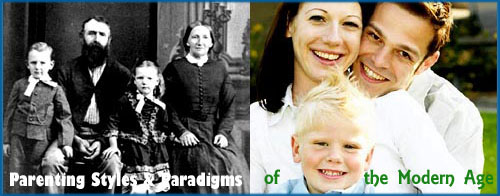
Tracing Diana Baumrind's 3 Parenting Styles Through History! The Essence of the Dominant Child Rearing Paradigms
• Believe it or not, the interest in good parenting, parenting styles and general child care is actually a relatively new phenomenon.
• In this article you'll get an outline of the dominant parenting paradigms of our modern age starting from early 1900s up till to today.
• Sit tight for an interesting journey through the history of parenting and child rearing values.
The Psychological and Scientific Interest in Children Is Only a Little Over 100 Old!
The scientific interest in parenting and academic discussions of 'what is the best mode of child rearing' haven't actually been around for that long!Of course that's always a matter of perspective, but considering the fact that we humans have been having kids for eons, literally, the deep founded interest in the psychology of children and their general development and well-being is remarkably young.
In fact, it was only in the late 1800s that pediatrics, infant care and child psychology actually became subjects of scientific interest.
Before that time, the general perception of children and general child health care was typically influenced by various religious convictions and dominating philosophical attitudes.
The Late Birth of the First Child Care Organizations!
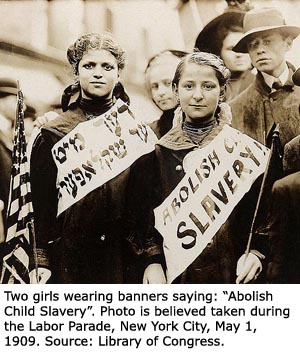
The great Industrial Revolution of the 1800s can be seen as a two-edged sword.
On the one hand, the Industrial Revolution represented optimism and hope for the future in terms of great advances in technology, agriculture and general economic growth.
On the other hand, it wasn't necessarily a great improvement for children and their living conditions.
If anything, with the Industrial Revolution, child labor became more visible than ever before.
Fortunately, the general awareness of children's harsh circumstances rose throughout the century.
So in 1833 and 1844 the first English laws were made to reduce child labor (however, in 1900 there were still 1.7 million child laborers in America.)
In spite of this high number one may view the late 1800s as representing the birth of children's rights:
- In 1887 the American Pediatric Society saw the light of day. The American Pediatric Society was established in order to provide the general public with educative information on various infant issues. In line with this physicians and nurses also started conducting baby examinations.
- In 1897 PTA (The Parent Teacher Association) was founded as a group of spokesmen for children and their health and safety.
- In 1912 U. S. Children's Bureau was founded. The U. S. Children's Bureau provided information on infant care and maternal health matters.
This means that not only had science moved into the parenting domain, the physical and emotional well-being of children was also seen as governmental issue, too.
From 1920 and Onwards:
- Public Interest in Parenting Is Now Slowly Being Awakened!
Yes, from approximately 1920 and onwards scientific information on child care and child health started to become general public knowledge.
Rather than just following tradition or family customs, mothers were increasingly influenced by the strong authoritative voice of 'science'.
A voice that was - and still is - very convincing, alluring and powerful, but not always wise!
In the next couple of sections I will briefly outline the 3 most dominant 'scientific' approaches to parenting that were identified during the 1900s.
I will present them chronologically trying to stay true to the time when they were scientifically discovered and defined.
The Victorian Adult Centred Parenting Style
- Pre Second World War
"Control the Child"In 1928 behaviorist John Broadus Watson wrote the famous "Psychological Care of Infant and Child".
In this book he shares his rather mechanical view on people and society.
Basically he views children as objects that are to be strictly shaped and moulded so that they may develop into efficient tools of society.
In order to prepare children for adulthood and society's high demands, parents were encouraged to keep their children in very tight reins and install a good and sound work ethic.
This was best though done by keeping children under strict behavioral control (requiring instant obedience and demanding chores etc.) as well as psychological control (using threats along with aggressive intrusiveness).
Today, one can hardly believe it, but in "Psychological Care of Infant and Child" parents are directly advised to withhold their affection so as to not spoil their children.
What John Watson is actually advocating is the message 'showing love is dangerous'.
He is recommending that women reject and abandon their motherly instinct to bond and nurture their children on an emotional level.
Emotions, positive as well as negative are perceived as threats to order of things and to what we may call instrumental rationality!
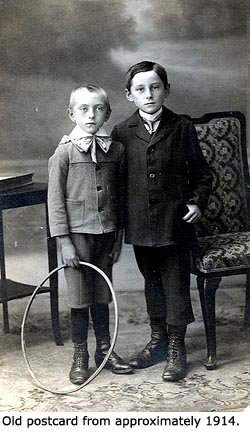
Here are some parenting quotes by John Broadus Watson that may give you an idea of how he viewed children:
"Give me a dozen healthy infants, well-formed, and my own specified world to bring them up in and I'll guarantee to take any one at random and train him to become any type of specialist I might select–doctor, lawyer, artist – regardless of his talents, penchants, tendencies, abilities, vocations and race of his ancestors" (John B Watson,1930)
"Treat them as though they were young adults. Dress them, bathe them with care and circumspection. Let your behavior always be objective and kindly firm. Never hug and kiss them, never let them sit on your lap ... Shake hands with them in the morning." (John B Watson, 1928)
The Freudian Child Centred Parenting Style
- Post Second World War
"Sense the Child!"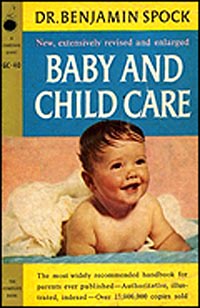 In 1946 Benjamin Spock, a representative of the Freudian psychoanalyst view, published "In Baby and Child Care".
In 1946 Benjamin Spock, a representative of the Freudian psychoanalyst view, published "In Baby and Child Care".
In this book Benjamin Spock sought to encourage mothers to trust, not abandon, their own parenting instinct (something the advent of John Broadus Watson's educational child rearing science had tried to eradicate).
Basically Benjamin Spock urged parents to try and see the world from perspective of children in order to better understand their behavior, needs and personality.
Acknowledging and meeting the child's needs was seen as crucial for the child's well-being and healthy future development.
Spock saw parenting more as a matter of 'working with' the child by trying to understand the reason behind tantrums, disobedience etc.
Contrary to what has been said about Benjamin Spock, he didn't call for a complete abandonment of discipline.
No, he saw discipline more as a question of acknowledging what a child is actually capable of doing at a particular age and stage of child development.
In other words, he was a spokesman for what may be called age appropriate discipline.
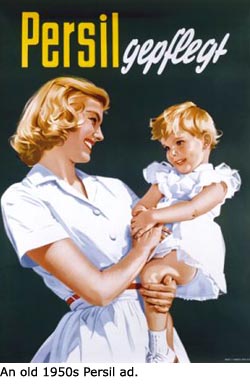
Another scientific voice supporting the great importance of affection, warmth and child mother bonding also came forward in the late 1940s and in the 1950s.
This was the strong voice of psychoanalyst John Bowlby.
John Bowlby did his famous research on attachment theory, child grief and separation processes which lead to valuable insights into early infant bonding processes.
Yet another voice from the child centred parenting domain was A. S. Neill, the Scottish educator and founder of Summerhill School.
He was a passionate advocate of children's right for personal freedom but since then he has been criticized (by Diana Baumrind, among other people) for putting the child too much in the centre and allowing the child too much freedom.
Here are some parenting quotes by A. S. Neill:
"I believe that to impose anything by authority is wrong. The child should not do anything until he comes to the opinion - his own opinion - that it should be done!" (Neill 1964, p.114)
"Free children are not easily influenced; the absence of fear accounts for this phenomenon. Indeed, the absence of fear is the finest thing that can happen to a child." (A. S. Neill)
"The difficult child is the child who is unhappy. He is at war with himself; and in consequence, he is at war with the world." (A. S. Neill)
"The function of the child is to live his own life – not the life that his anxious parents think he should live, nor a life according to the purpose of the educator who thinks he knows best." (A. S. Neill)
The Mix of the Victorian Father and Freudian Mother:
- The Authoritative Parenting Style, Mid 1960s
"Control and Sense the Child!"Developmental psychologist Diana Baumrind has contributed tremendously to the area of child rearing research by delineating the 3 most widely used parenting styles in white middleclass America in the 1960s:
- The authoritarian parenting style (the behaviorist parenting approach recommended by John Broadus Watson, high parental control, low parental responsiveness).
- The permissive parenting style (the Freudian approach to children low parental control, high parental responsiveness).
- The authoritative parenting style (a combination of the two: high parental control along with high parental responsiveness).
Diana Baumrind views parenting as a form of socialization process:
She would say something along the lines of, 'You have to prepare your child for the demands of society but in a way that respects your child's individuality!'
Here are some parenting quotes by Diana Baumrind:
"[...] authoritative control can achieve responsible conformity with group standards without loss of individual autonomy or self-assertiveness." (Baumrind 1966, p 905)
"She encourages verbal give and take, and shares with the child the reasoning behind her policy. She values both expressive and instrumental attributes, both autonomous self-will and disciplined conformity. Therefore, she exerts firm control at points of parent-child divergence, but does not hem the child in with restrictions. She recognizes her own special rights as an adult, but also the child's individual interests and special ways. The authoritative parent affirms the child's present qualities, but also sets standards for future conduct. She uses reason as well as power to achieve her objectives. She does not base her decisions on group consensus or the individual child's desires; but also does not regard herself as infallible or divinely inspired." (Baumrind, 1968, p.261)
A Model of Diana Baumrind's 3 Parenting Styles!
Below you'll see a model I've made containing the dominant values or primary features of Diana Baumrind's 3 parenting styles.Sometimes the 'bubbles' overlap. The values placed in the 'shared space', represent shared values.
Please, remember that people have different opinions as to what constitutes e.g. permissive parenting or authoritative parenting. (For instance, I don't necessarily agree with Diana Baumrind and her ideal of high control, but that is another discussion altogether that you can read more about in this article on the four basic parenting styles.)
In the model below I've done my best to represent Diana Baumrind's view point in terms of how I think she would distribute the values.
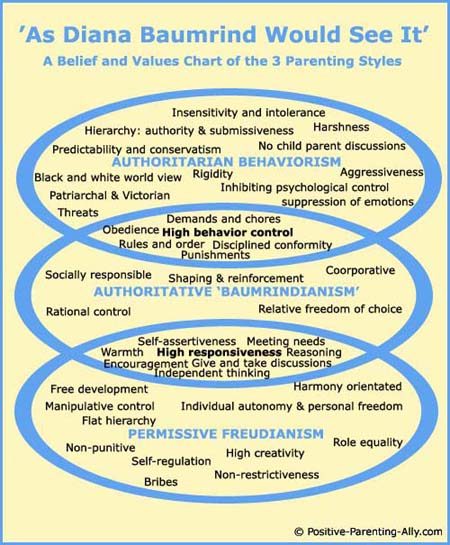
Here are the values in normal text:
Authoritarian Parenting Beliefs and Values: Patriarchal, Victorian, behaviorist, insensitivity and intolerance, hierarchy, authority, submissiveness, harshness, predictability, conservatism, no parent child discussions, black and white world view, rigidity, aggressiveness, inhibiting psychological control, suppression of emotions, threats.
Shared Authoritarian and Authoritative Values: High behavior control, disciplined conformity, demands and chores, rules and order, obedience, punishments.
Authoritative Parenting Beliefs and Values: Socially responsible, shaping and reinforcement, coorporative, rational control, relative freedom of choice.
Shared Authoritative and Permissive Beliefs and Values: High responsiveness, give and take discussions, self-assertiveness, warmth, independent thinking, meeting needs, encouragement.
Permissive Parenting Beliefs and Values:
Freudianism, manipulative control, bribes, individual autonomy and personal freedom, high creativity, non-restrictiveness, role equality, non-punitive, harmony orientated, free development, flat hierarchy, self-regulation.
Your Chosen Parenting Style Is Dependent on Your Goals and View of the Perfect Child!
According to Nancy Darling and Laurence Steinberg (1933) in: Parenting Style as Context: An Integrative Model - in Psychological Bulletin), there are 3 things that determine how parents affect their children:- The emotional relationship between parents and child (expression of emotion, tone of voice etc.)
- The parents' behavioral habits toward their child.
- The parents' belief system
It's particularly the last one I will deal with here, namely belief systems and goals.
Most people don't think about parenting styles. They just more or less copy their parents' parenting style or follow the dominant parenting trend in their society.
This is fine, if that is really what you want!
Diana Baumrind's authoritative parenting style has received widespread approval from western child experts.
Authoritative parenting is considered the most successful of the 3 parenting styles in terms of producing happy, independent children that do well in school.
Authoritarian parenting is generally considered an oppressive parenting style that may have unfortunate long term consequences for children in terms e.g. of low self esteem and poor social skills
Permissive parenting has been praised for producing children with good social skills and high self esteem but mediocre academic performance. Therefore this parenting style is also seen as less successful because in general, academic performance is considered a goal.
But 'what is a goal' is all dependent on the point of view which again is typically influenced by societal norms.
Permissive parents' children may do less well in school but maybe school performance isn't considered as important a value by the parents as creativity and personal freedom.
Now, I'm not saying that one is better than the other!
I'm just making the point that what is considered the best values to grow in your child is a question of personal perspective - it's not a universal given!
I'm not an advocate of authoritative parenting, nor am I an advocate of permissive parenting.
Rather I'm an advocate of what you may call conscious parenting ...
Conscious Parenting Is Getting in Touch With Yourself, Keeping the Long Term Perspective While Sensing Your Child!

To me parenting is all about awareness: Getting in touch with yourself as parent - listening to your intuition - in order to better know what is needed on a higher level (this is not only in relation to your child but also in relation to your own needs.)
Sometimes my child needs my control in terms of some limits and boundaries in order to feel secure and have a sense of predictability. But sometimes he needs his freedom. He needs to be able to choose and have a say in what happens to him.
I have no rules other than 'what is called for'. I do not follow senseless norms just because they are there.
That doesn't mean it's not a challenge because fulfilling needs may require expanding your mind beyond what the norms say are the 'correct' way of raising children.
It also requires opening your heart and sharpening your intuition in order to 'feel' what is the right thing to do!
This is why I find Baumrind's authoritative parenting style a bit too rigid.
Yes, there is warmth and affection but the parent's main role according to Baumrind is still to be an authority and control the child's behavior.
However, in my eyes, sometimes need to step forward and take control and sometimes they need to step back.
Parents use their open mind and sharp intuition to judge each situation (conflict) according to 'what is needed'!
If I were to put names on the parenting styles I practice, I would say that it's a mix of positive parenting, attachment parenting and unconditional parenting.
Hope you enjoyed this article. If you want to read in-depth articles on each of Diana Baumrind's parenting styles, please, feel free to follow the links below.
Your Positive Parenting Ally,
Birgitte

Want to stay in touch and get the latest news?
Sign up
for my free newsletter
Parent Coaching
- For Inner Peace, Clarity and a Deeper Connection to Your Child
 Being a parent can feel like a double-edged sword. Life with kids may feel like the greatest gift you have ever received, while at the same being hugely challenging, often leaving you confused, stressed and overwhelmed.
Being a parent can feel like a double-edged sword. Life with kids may feel like the greatest gift you have ever received, while at the same being hugely challenging, often leaving you confused, stressed and overwhelmed.
When we feel like this, we've lost touch with ourselves. We can't hear our own inner voice, and it's difficult to know what is 'right' for us and how to act.
I offer in-depth parent coaching to help you regain your balance and get back in touch with yourself. From a place of inner peace and clarity, your will find your own answers which will help you reconnect with your child from a place of unconditional love and acceptance.
Read more about my parent coaching here.
Where Would You Like to Go Next?
Articles on Diana Baumrind's 3 Parenting Styles
 Diana Baumrind's 3 Styles of Parenting: Get a Full Understanding of Baumrind's 3 Archetypical Parents. |
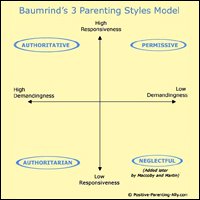 The Four Basic Styles of Parenting Taken a Step Further: Reviewing Diana Baumrind's Model with the Tool of High Awareness. |
Articles on the Authoritarian Parenting Style
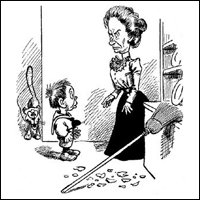 A Fascinating Historical View on the Authoritarian Parenting Style Along with Deep Insights into Authoritarian Parents' Thought Pattern and Its Effect on Their Kids. |
 A Psychological Profile on Authoritarian Parents! Understanding the Authoritarian Personality from Within! |
 The Essence of the Authoritarian Parenting Style and the Long Term Effects of Strict Parenting! |
Articles on the Permissive Parenting Style
 The Permissive Parenting Style Seen in an Existential Light. The Beingness of Permissive Parenting vs. the Beingness of Positive, Unconditional Parenting! |
 Understanding the nature of the permissive parenting style: Going beyond Diana Baumrind's idea of low demandingness and get deep insights into the psychology of permissive parents. |
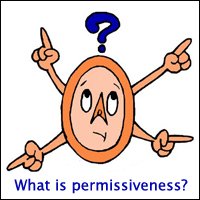 Permissive Parenting Historically and Psychologically: The Rise of 'Permissive' Parenting and the 3 Fear Based Indulgent Parenting Strategies! |
 A Psychological Profile on 3 Types of Permissive Parents: Understand Their Indulgent Behavior by Understanding Their Ego Fears! |
Articles on the Authoritative Parenting Style
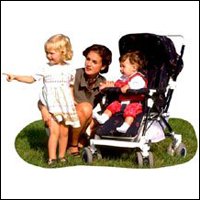 Deep Insights into the Authoritative Parenting Style along with Modern Perspectives on Diana Baumrind's Beloved 'Firm Parental Control'! |
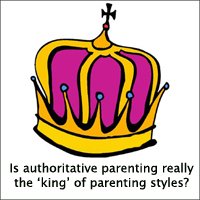 Academic Criticism of the Authoritative Parenting Style: Questioning Diana Baumrind's Celebration of High Control! |
Back to the top of this page about Tracing Diana Baumrind's 3 Parenting Styles Through History! The Essence of the Dominant Child Rearing Paradigms
Go to the Positive Parenting Ally Homepage







